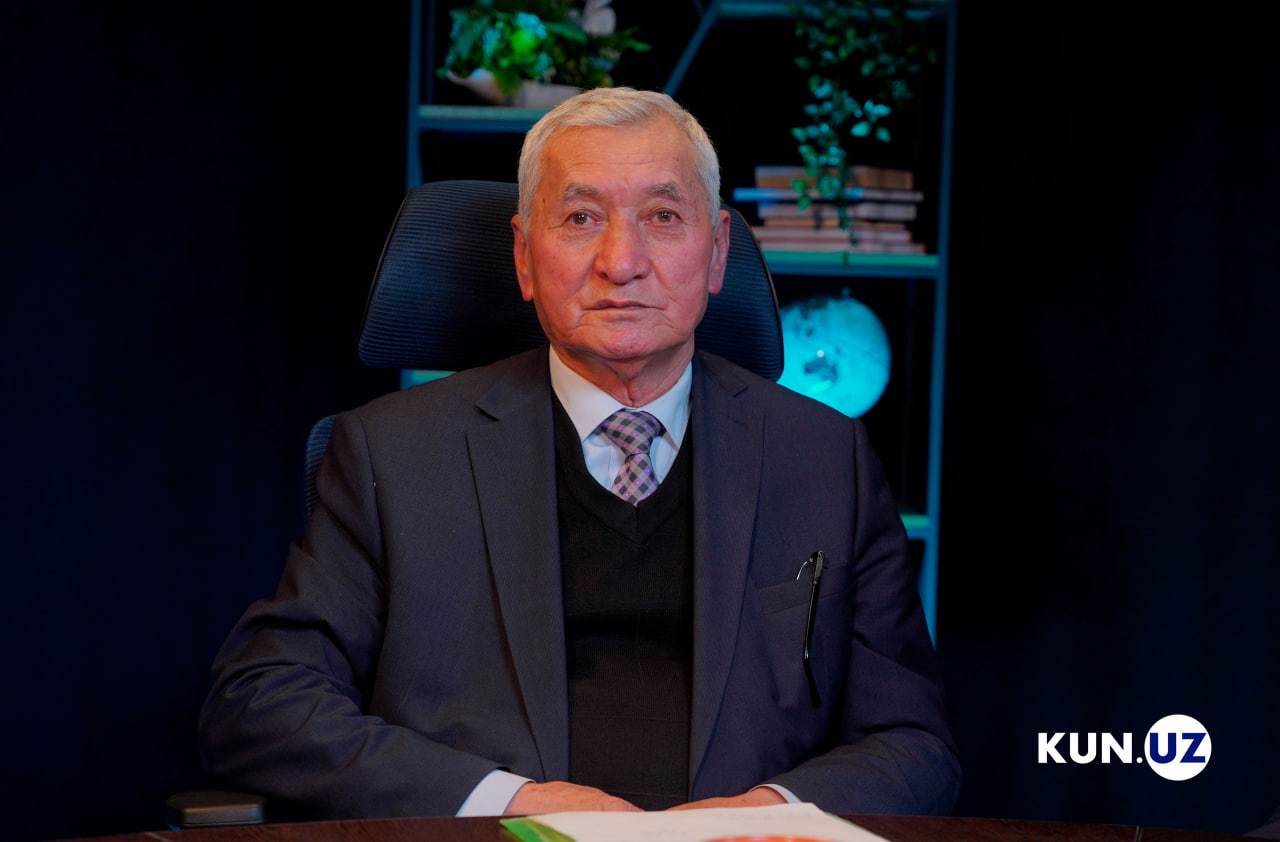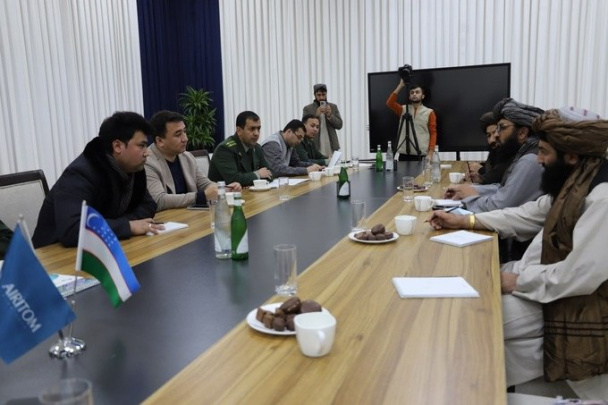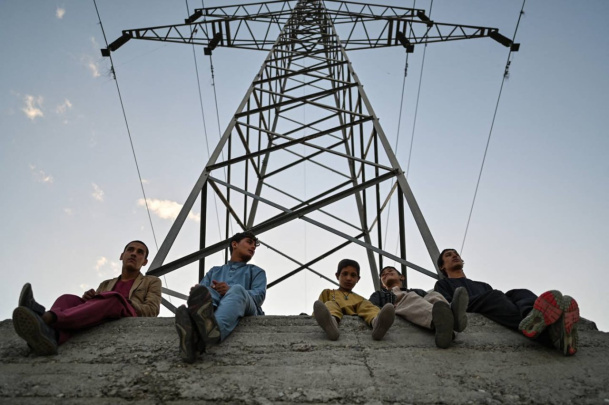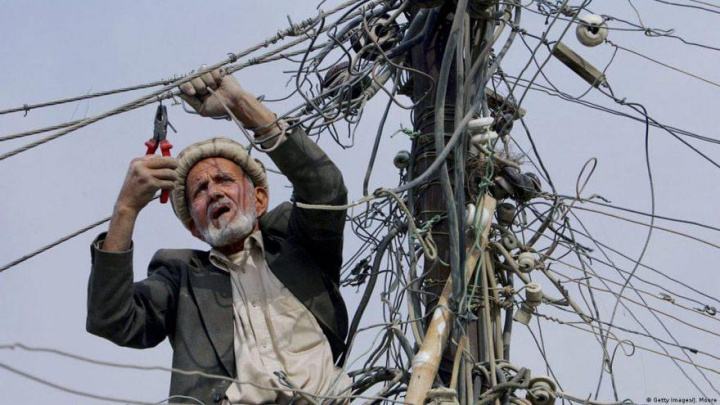Experts talk about a canal being built by Taliban and its tragic consequences for Uzbekistan
If the canal built by the Taliban is completed, the volume of water coming from the Amudarya to several regions of Uzbekistan and Turkmenistan will decrease sharply. The construction of this canal is yet another headache for the region’s troubled neighbor.
Another serious problem has appeared in Uzbekistan, which is already struggling with problems such as water shortage, drought and desertification.
On March 31, 2022, the Taliban government presented a project for the construction of a large canal in the north of the country. According to it, the Kushtepa canal, which starts from the Amudarya, is being built in the territory of Balkh province.
When this canal is completed, the water will decrease to 34 cubic kilometers in less water years, that is, almost 10 cubic kilometers of Amudarya water – a third of the river water – will flow into the interior of Afghanistan. This can create serious consequences for Khorezm, Bukhara, Surkhandarya and Navoi regions and the Republic of Karakalpakstan.
Kun.uz correspondent spoke to Doctor of Agricultural Sciences, Professor Usmon Norkulov, political scientists Kamoliddin Rabbimov and Sukhrob Buronov about this big problem facing the statehood of Uzbekistan and the situation in Afghanistan in general, the complications that have arisen in the relations between the interim government there and the government of Uzbekistan.
- Mr. Usmon, as a reclamation scientist, how aware are you of the Kushtepa canal project, which is being built in the north of Afghanistan? What kind of project it is, and what will happen when it is completed?
Usmon Norkulov:
- Due to the long-term wars in Afghanistan, there have been drastic changes in the water system and agriculture. In the 70s of the last century, Afghanistan cultivated 3.5 million hectares of land under irrigation. As a result of the turmoil of the following years, 1.5 million hectares of agricultural land were abandoned. Not only the land, but also the irrigation networks have become unusable. The canal that is currently being dug is really huge.
There is an important question here: where do they get the main part of the water? According to the current information, they will take it from the beginning of Amudarya. The canal passes through the plains of Afghanistan. There is a large plain in the southeastern part of the canal. A large part of this plain corresponds to the territory of the Karakum desert. And the canal passes through a sandy area, and the efficiency of the canal is low. The Karakum canal of Turkmenistan is a canal of the same category.

I think there will be a lot of water loss. It has a great impact on the ecology of the environment, the composition of the soil, and the salinity cycle. Even if 50% of the water reaches the field, there will still be problems, because the field is not yet ready to receive this water. The worst part is that there should be irrigation networks, distribution-metering facilities. There are questions about how the farmers in that area are prepared, what they want to grow, and how much water they need.
How might it affect us? Until now, Afghanistan received 7 km³ of water from the Amudarya basin. Now it is planned to get 17 km³. This means that we have a 10-15% decrease. It has a negative effect on those downstream.
It may not be felt in Tajikistan, but the reduction of the main water will be in the territory of Uzbekistan and Turkmenistan. At worst, it will seriously affect Karakalpakstan and Khorezm, which are in the lower part of the river.
Due to climate change and general drought, our water resources are decreasing. We are losing 15% of water due to climate change, and if we lose at least 10%, 25% of water will be lost. This causes many crises. It will be difficult for us to fill the reservoirs. We will have to build additional facilities. The whole system might break down. We must always be prepared for water shortages.
- There is a UN Convention on the Protection and Use of Transboundary Watercourses. You said that if this channel is built, it will be a big tragedy for us. But the Taliban say that “the area is ours, the water passes through us, which means that we have the right to build a canal”.
Usmon Norkulov:

- All Central Asian states receive water from transboundary rivers. States must agree with each other. Afghanistan is not a member of the Convention. Depending on natural supply, states should share the existing water. It should not be insisted to take a certain amount of water. In the deployment of natural supply, the population, the requirements for water should be taken into account. When calculations become clear, the countries should agree and interact.
It should be noted that there will be a shortage of water in Central Asia, which does not end. Therefore, for example, whether we are moving to water-saving technologies, others must do the same. Any water-saving solutions should be implemented together. And as a result, existing waters will be sufficient for all of us.
- In the last few months, the Taliban’s interim government and the Uzbek government have cold relations in terms of water issue. For example, from February 1, Afghanistan suspended the railway from Uzbekistan.
Uzbekistan Railways has said the contract between the two countries has not been implemented in a timely manner. As a political scientist, how much do know about this relationship? What is the problem?
Kamoliddin Rabbimov:

- There is a chain that consists of a number of unsolved problems. Uzbekistan’s geopolitical view – the new Afghan administration should maintain peace in Afghanistan. That is why in 2018, the Taliban began diplomatic relations ahead of its governance. For the first time in the past 40 years, one political force is controlling the entire region in Afghanistan. To avoid the start of the citizens’ war again, peacekeeping in Afghanistan is considered strategic interests of Uzbekistan. But the demographic growth of Afghanistan is very large (38 million people as of today). It wants to supply water and develop agriculture in its northern three regions, ensure its own food security through this. The result is ensuring social stability. Afghanistan has benefits, but the consequences are negative. Great water is also consumed during the transition via Turkmenistan.
The diplomatic relations with Afghanistan are now acute dilemma in front of Uzbekistan. Uzbekistan cannot fully accept the issue because of its interests. However, Afghanistan has the right to use water in accordance with the international law. Uzbekistan is facing a complex task: Even if the Taliban disagree with the Transboundary Water Convention, a specific agreement should be reached for control of water supervision.
Uzbekistan cannot put veto in the construction of a canal. No state of the region wants a war with the Taliban, but Uzbekistan cannot stand by due to its interests. In my opinion, Uzbekistan and Turkmenistan will hold talks with the Taliban. There is no other way.
Sukhrob Buronov:

- Water is the issue of the future. There will also be talk of turning water into a political weapon. According to “Global Water Intelligence” magazine, the revenue generated in the water market in one year is close to the amount of money used for military purposes. This raises the issue of fresh water and water used for irrigation in the future. It is already becoming clear in Central Asia.
The construction of the Kushtepa canal made the issue more urgent. 108 km – the first stage was officially announced. It means that one of the three stages has been completed. Because we are downstream, we can be greatly affected.
The political aspect of the matter is that they can use it to exert political pressure. To prevent this, we will have to respond adequately. I guess the suspension of railway communication is related to this issue. Because in the presidential address in December, Shavkat Mirziyoyev also talked about the construction of this canal.
According to information, this is a $684 million project. This is a huge sum for the Taliban government, which is on the brink of economic crisis. And this funding force tries to influence bilateral relations. Or it may be aimed at exerting some kind of political pressure. This should also be avoided. The main thing is that it should be based on international legal conventions.
Usmon Norkulov:
- For this, Afghanistan should become a member of the convention. There is no conflict between Tajikistan, Turkmenistan and Uzbekistan on the issue of water, because everything is accepted based on reason. It will be distributed according to the amount of water in the basin. I think that water will be sufficient for both countries if we handle it in an equal relationship. For this, all countries should establish a system of efficient use of water.
One can watch the full interview in the video above.
Related News

16:00 / 23.12.2024
Exports to Afghanistan through the Termez trade center exceed $15 million

10:51 / 19.12.2024
Uzbekistan to continue supplying electricity to Afghanistan through 2025

19:09 / 16.12.2024
HTS’s influence on the security of Central Asia: Rising threats and strategic alliances

11:40 / 16.12.2024



